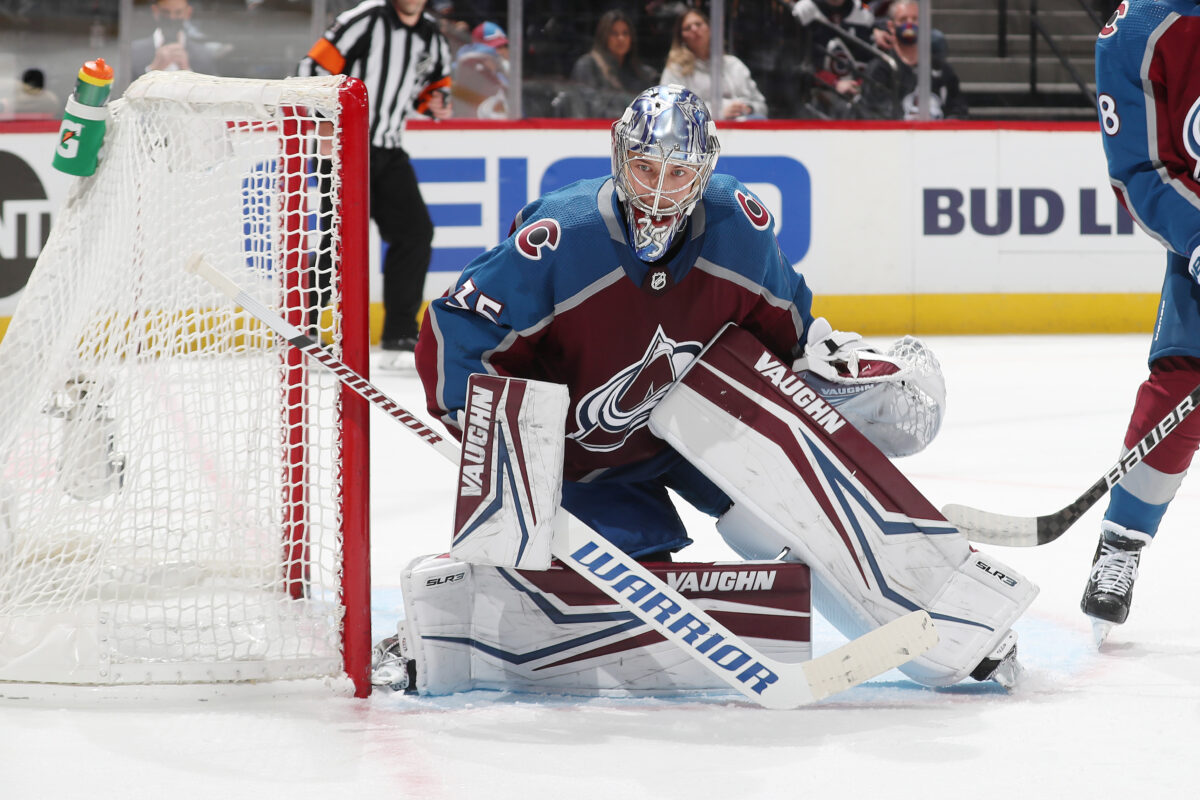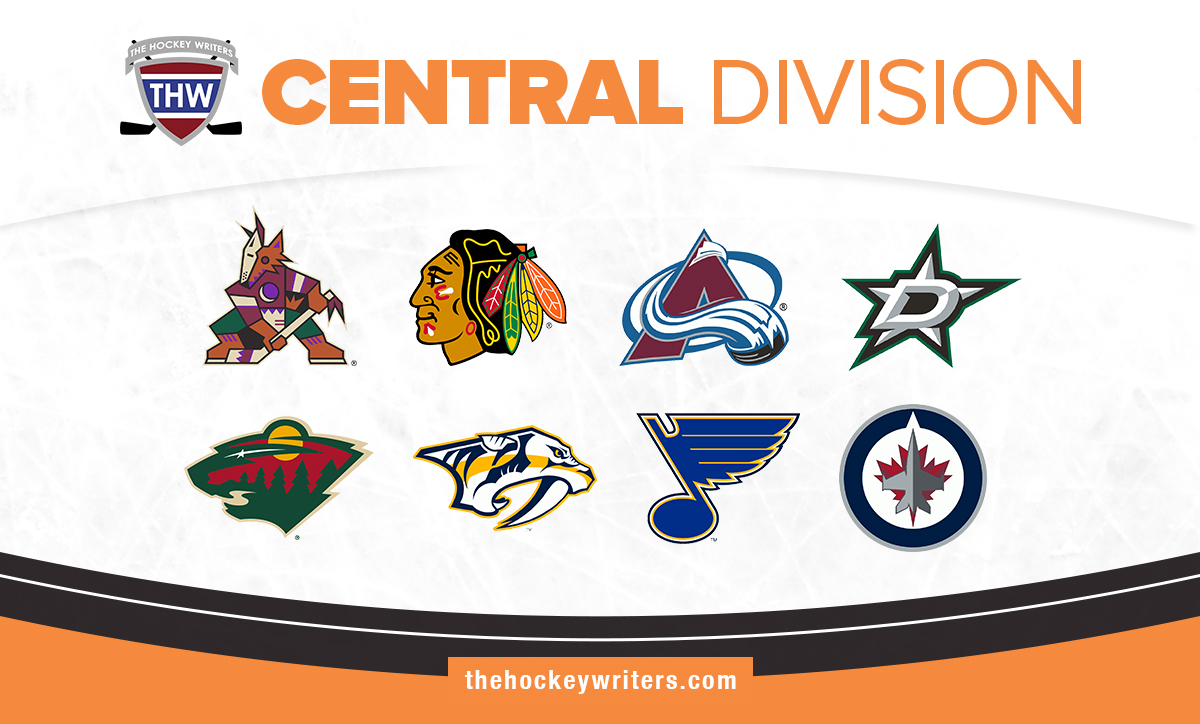When the NHL season opened in October, the Colorado Avalanche were slight favorites to win the Stanley Cup. Since then, Colorado has underperformed expectations, yet they still remain the betting favorite to win the league championship.
The team has a record of 17-8-2, which puts them fourth in the Central Division, sixth in the Western Conference, and 13th in the league. If the season ended today, their 36 points would tie them with the Edmonton Oilers for one of the two Wild Card spots in the Western Conference, but three teams — the Winnipeg Jets, San Jose Sharks, and Los Angeles Kings — are only three points behind.
The Avalanche have also been allowing too many goals. Through 27 games played, the team has allowed an average of 3.37 goals per game, which is tied for sixth-worst in the league. They are the only team in that group of seven with a winning record.
So what gives? How can Colorado, a middle-of-the-pack team surrendering a lot of goals, still be the favorite to win the Cup. Here are five reasons why:
Injuries and COVID Have Derailed Colorado
Only four members of the Avalanche — Darren Helm, Erik Johnson, Tyson Jost, and Logan O’Connor — have played all 27 of the team’s games. Every other regular player has missed at least some time, with several of the team’s most important players missing significant time due to either injury or COVID protocol:
| Player Name | Games Missed |
| Bowen Byram | 14 |
| JT Compher | 12 |
| Devon Toews | 11 |
| Nathan MacKinnon | 10 |
| Ryan Murray | 10 |
| Valeri Nichushkin | 9 |
| Gabriel Landeskog | 5 |
| Cale Makar | 4 |
While Colorado hasn’t suffered the most man-games lost (that honor belongs to the Montreal Canadiens and Vegas Golden Knights), the graph above shows that the team has suffered impactful losses. MacKinnon, Toews, Nichushkin, and Byram have each missed a third of the season or more. When the Avalanche are once again whole, or closer to whole than they’ve been most of the season, it’s reasonable to presume they will perform better.

And this doesn’t take into account time missed by the team’s number one and number two goaltenders, Darcy Kuemper and Pavel Francouz. Francouz has started only one game this season, and Kuemper has started 19. Kuemper’s 2.77 goals-against average shows that the team’s 3.37 goals allowed per game has been, at least in part, due to unreliable backup goaltending. If Kuemper and Francouz can stay healthy, the team should surrender fewer goals.
Despite all this, Colorado is 7-2-1 in their last ten games.
Avalanche Have the League’s Best Offense
While the Avalanche are surrendering more goals than most teams, they are scoring more goals than every other team. Their 4.22. goals per game average is more than half a goal better than the next closest team, the Minnesota Wild, who are averaging 3.63 goals per game.
The last team to have a higher goals per game average was the 1995-96 Pittsburgh Penguins, who averaged 4.41 goals per game for the entire season. That was more than 25 years ago.
Additionally, the Avalanche have scored at this rate while missing several key players in almost every single contest. As the team gets healthier there is no reason to imagine their offensive output will decline. Just the opposite. It’s not unreasonable to think this Avalanche squad has the talent to put up historic numbers this season.
Games in Hand
Colorado has played only 27 games to date. Only the Boston Bruins and New York Islanders have played fewer games. And with the Avalanche not scheduled to play again until Jan 2, the team will gain more games in hand over the coming days.

The Avalanche trail the Central Division-leading Wild by only four points in the standings (Minnesota with 40 points, Colorado with 36), but have played three fewer games. And Colorado and Minnesota will play three more times before the season is over.
It’s a similar story with most of their other division rivals, with Colorado having four games in hand against the St. Louis Blues, and three games in hand against both the Jets and the Nashville Predators as of this writing. With all of the contending teams in the division closely bunched in the standings, the Avalanche control their own destiny.
Easy January Schedule
The Avalanche started the season with a very difficult schedule. Seven of their first ten games were against opponents with a winning record last season. And two of the three games against teams with a losing record were against the Columbus Blue Jackets, who were 5-3 entering back-to-back contests with Colorado.
January, when the Avalanche return from their COVID-enforced break, is a very different story. As of now, the Avalanche are scheduled to play 16 games, eight of which will be against teams with losing records, including three vs. the Chicago Blackhawks (11-15-4), two with the Arizona Coyotes (6-21-3), and one each against the Montreal Canadiens (7-21-4), Seattle Kraken (10-17-3), and Buffalo Sabres (10-15-5).
If the Avalanche can get healthy, they have an opportunity for a strong month, propelling them forward in the standings.
The Ticking Clock
As I’ve written elsewhere, the Avalanche are built to win this year. With five key contracts — Andre Burakovsky, Pavel Francouz, Nazem Kadri, Darcy Kuemper, and Valeri Nichushkin — expiring at the end of this season, the 2022-23 Avalanche will likely have a decidedly different look.
Related: 5 Avalanche Players Who Probably Won’t Be Back Next Season
But the ticking clock is not just a general manager/salary cap issue. After Colorado’s no-excuse, early exit from the playoffs last season, key members of the team made it clear they had chips on their shoulders, and have a lot left to prove. Here are quotes from each member of the Avalanche’s number one line after their second-round loss to the Golden Knights in last year’s playoffs:

“You’re never going to be satisfied, you’re never going to be happy until you win that final game of the season. It sucks. It stinks.” — Gabriel Landeskog
“Nobody wants to play good in the regular season and then lose in the second round.” — Mikko Rantanen
“I’m going into my ninth year next year and haven’t won shit.” — Nathan MacKinnon
This team is hungry to win now, and given the looming contract issues, now is the time to get it done. With a hopefully healthier squad in 2022, there is no reason to believe the Avalanche can’t live up to their potential and seriously contend for the Stanley Cup.
Colorado returns to action after an 18-day hiatus on Sunday, Jan. 2, when they host the Dallas Stars.